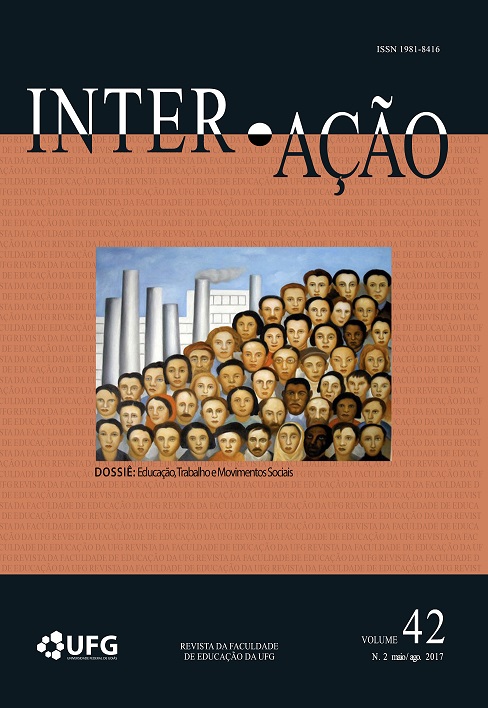PAULO FREIRE NO ÂMBITO DA PESQUISA: OS CÍRCULOS DIALÓGICOS INVESTIGATIVO-FORMATIVOS COMO POSSIBILIDADE DE REINVENÇÃO DOS CÍRCULOS DE CULTURA E AUTO(TRANS) FORMAÇÃO PERMANENTE COM PROFESSORES
DOI:
https://doi.org/10.5216/ia.v42i2.44026Keywords:
Círculos Dialógicos Investigativo-formativos. Círculos de Cultura. Pesquisa. Auto(trans)formação permanente.Abstract
O presente artigo objetiva socializar as construções realizadas no âmbito da pesquisa, tomando como base os aportes teóricos de Paulo Freire. Inspirados pelos Círculos de Cultura (FREIRE, 2014), (re)criamos os Círculos Dialógicos Investigativo-formativos como uma proposta epistemológico-política de pesquisa, a partir de oito diferentes movimentos que os constituem: a escuta sensível e o olhar/aguçado; a emersão/imersão das/nas temáticas; o distanciamento/desvelamento da realidade; a descoberta do inacabamento; os diálogos problematizadores; o registro re-criativo; a conscientização e a auto(trans)formação, que vai se potencializando e se constituindo em todos os demais movimentos. Durante a realização dos Círculos Dialógicos com os professores esses movimentos vão se tramando dialógica e dialeticamente, visando sempre a auto(trans)formação, tanto do pesquisador líder como dos sujeitos coautores envolvidos na pesquisa.Downloads
Downloads
Published
How to Cite
Issue
Section
License
Inter-Ação uses the Creative Commons Attribution 4.0 License for Open Access Journals (Open Archives Initiative - OAI) as the basis for the transfer of rights. Open access means making documents available on the Internet free of charge, so that users can read, download, copy, distribute, print, search, or link to the full text of documents, process them for indexing, use them as input data for software programs, or use them for any other lawful purpose, without financial, legal, or technical barriers.
Authors publishing in this journal agree to the following conditions:
1) Authors retain copyright and grant the journal the right of first publication, with the work simultaneously licensed under the Creative Commons Attribution License, which permits redistribution of the work with attribution and first publication in this journal.
2) Authors are permitted to enter into additional, separate agreements for non-exclusive distribution of the version of the work published in this journal (e.g., for publication in an institutional repository or as a book chapter), with attribution and first publication in this journal.
3) Authors are permitted and encouraged to publish and distribute their work online (e.g. in institutional repositories or on their home page) at any time before or during the editorial process, as this may generate productive changes as well as increase the impact and citation of the published work.















